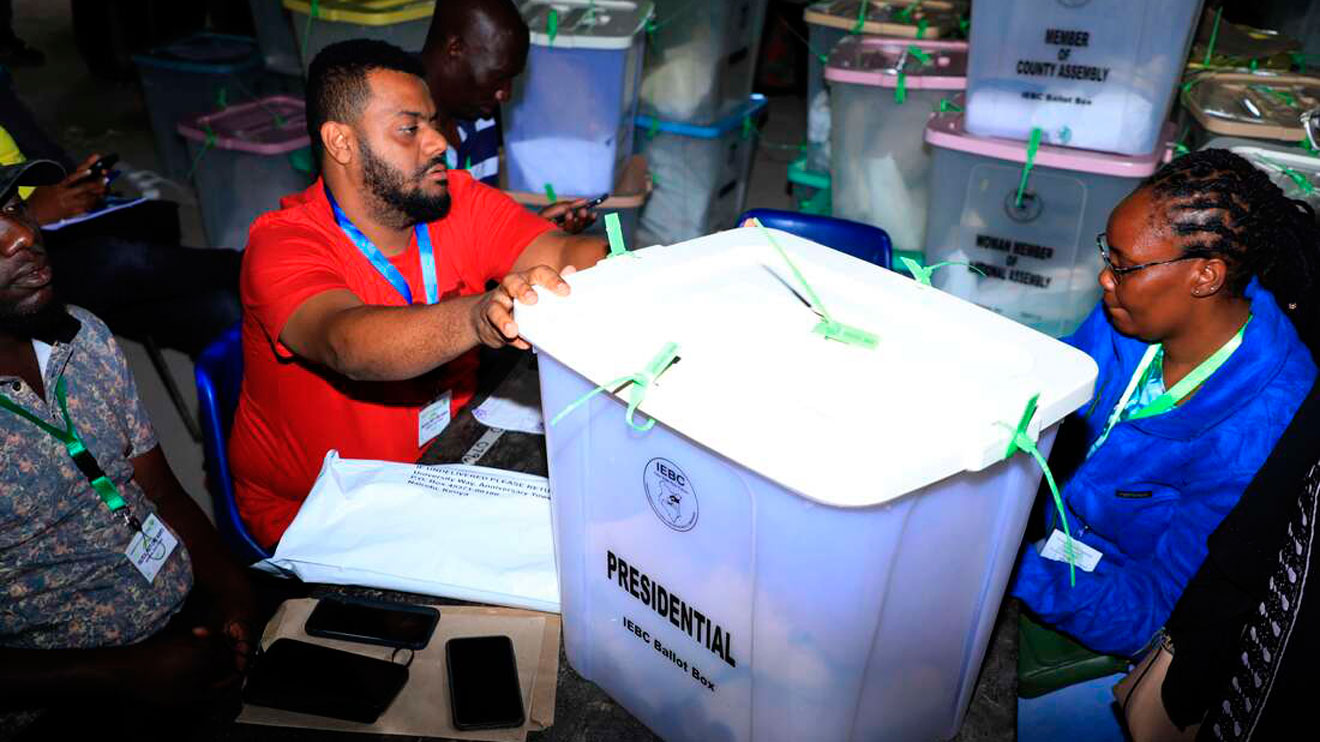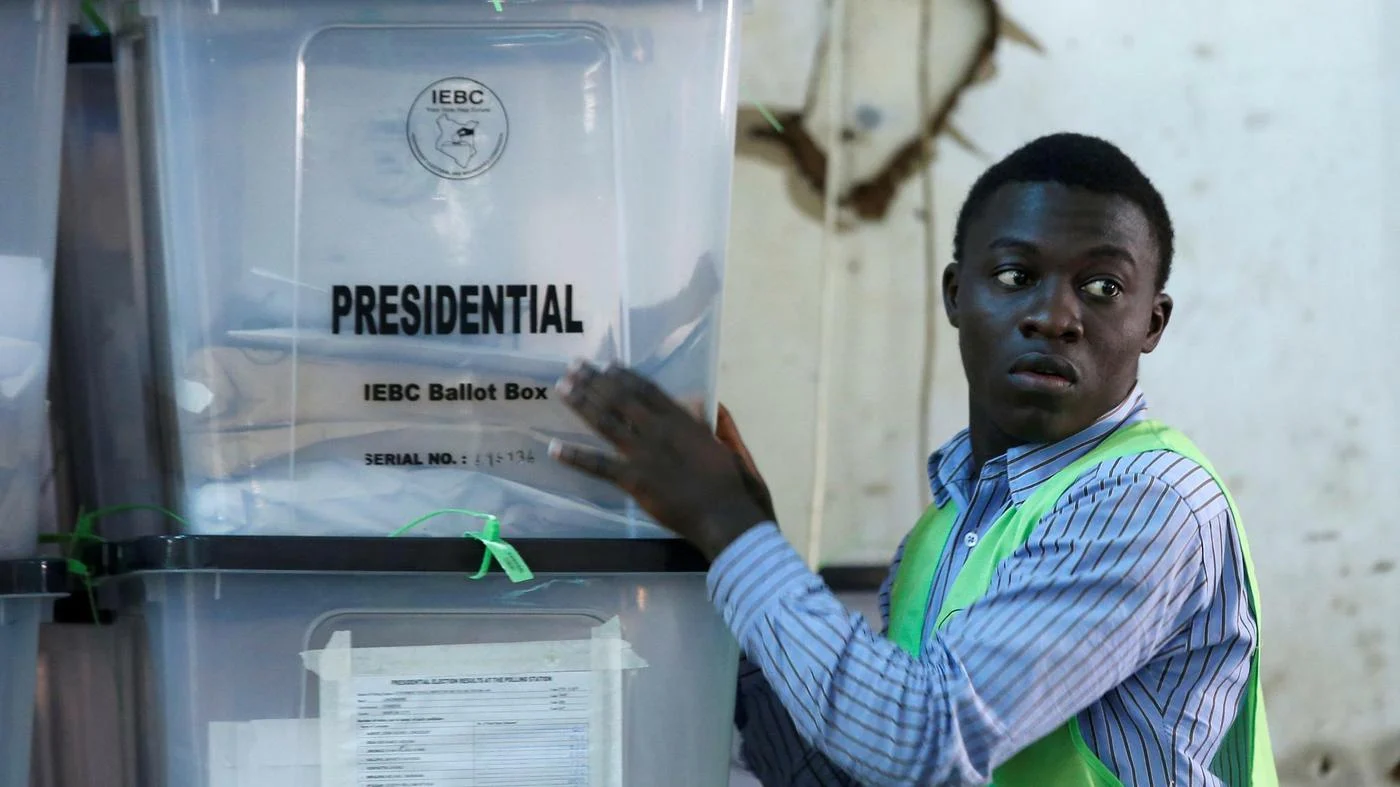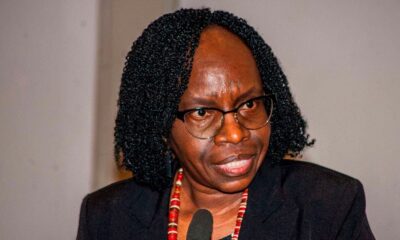Politics
IEBC Budget for 2027 Polls Raises Eyebrows Amid Funding Fears

The Independent Electoral and Boundaries Commission (IEBC) wants Sh57.4 billion to run the 2027 General Election.
The number shocked lawmakers and watchdogs already uneasy about rising public spending. With Kenya’s debt growing and the economy under pressure, many are asking whether this budget is justified or even realistic.
The IEBC defends the massive figure, saying it needs to register 6.3 million more voters, replace aging equipment, and settle billions in pending legal bills.
But questions continue to mount over transparency, cost efficiency, and whether the government can afford this price tag.

The IEBC Budget proposal has opened a fierce national debate about cost, accountability, and priorities. As 2027 draws closer, the electoral commission must prove it can spend wisely, act transparently, and deliver a credible vote. Whether or not it secures the Sh57.4 billion, the pressure is now on to justify every shilling. [Photo: Courtesy]
IEBC Budget Draws Scrutiny as Costs Climb
Kenya’s electoral body is seeking one of its largest budgets ever, with the IEBC planning to spend Sh57.4 billion ahead of the 2027 General Election. Appearing before Parliament’s Budget and Appropriations Committee, National Assembly Justice and Legal Affairs Committee Chair Gitonga Murugara revealed that the commission is requesting Sh5.12 billion for electoral preparations and Sh3.7 billion for routine operations.
A key chunk of the proposed budget includes Sh9.6 billion for the 2025/2026 financial year, with Sh788 million specifically allocated for upcoming by-elections. This spending plan is not just about the vote itself.
The IEBC wants to buy 59,352 electronic election kits — enough to cover 55,393 polling stations and provide 3,959 units for training officials. Of the total, 45,352 kits bought in 2017 will be replaced. Another 14,000 units from the 2022 elections will be reused.
High costs linked to result transmission, court rulings demanding new ballot reprints, forex-related losses, and emergency transportation of personnel and materials have all contributed to the rising budget.
According to Murugara, these reasons make the commission’s financial request “reasonable,” but lawmakers are not fully convinced. Also under pressure is the Office of the Registrar of Political Parties, which claims that poor funding may cripple the democratic process.
The registrar has asked for an additional Sh6.98 billion. The breakdown includes Sh256.69 million for election preparedness, Sh530.09 million for programs, and a massive Sh6.19 billion for the Political Parties Fund.
Yet the fund received only Sh1.428 billion in the current financial year — a far cry from the Sh7.618 billion required by law under Section 24(1) of the Political Parties Act. This leaves a gaping deficit of Sh6.19 billion. The shortfall could severely limit political party oversight and campaign transparency.
Legal Bills and Legacy Debts Complicate the IEBC Budget
One of the most troubling parts of the IEBC’s financial request is its ballooning legal bills. The commission is already burdened with Sh3.799 billion in pending payments. Legal fees alone make up Sh2.65 billion of that total.
Chairperson Murugara has ordered the IEBC to submit all relevant documents supporting these bills. He added that the committee will decide whether the Auditor General should carry out a special audit. This move suggests growing unease with how the electoral body handles taxpayer funds.
The source of these legal fees is tied to numerous court battles the commission has faced over the years. Most of the cases are related to past election disputes, contract disagreements, and supplier claims. Critics argue that the IEBC has failed to manage its legal risks effectively and is now passing the cost on to the public.
Election Integrity and Preparedness at Risk if Budget Falls Short
Despite the huge budget proposal, the IEBC has warned that without adequate funding, the credibility of the 2027 elections could be compromised. The commission says registering over 6 million new voters is vital to ensuring a fair and inclusive election.
It also insists that outdated voting kits must be replaced to avoid technical breakdowns that have plagued past elections. Still, several MPs have asked whether the commission has done enough to cut costs and streamline operations.
With the country facing record inflation and ongoing austerity, many feel this is the wrong time for such heavy spending. Others believe the IEBC should work with existing resources while focusing on restoring public trust.
The issue is further complicated by a High Court order that blocked the vetting of President William Ruto’s IEBC nominees. The commission is currently operating without a full team, casting doubt on its capacity to handle complex procurement and electoral planning.
Meanwhile, the registrar’s office remains severely underfunded, threatening political party regulation and citizen participation. If the government fails to boost allocations, election readiness could face major delays and errors.
Kenya Insights allows guest blogging, if you want to be published on Kenya’s most authoritative and accurate blog, have an expose, news TIPS, story angles, human interest stories, drop us an email on [email protected] or via Telegram
-

 Investigations2 weeks ago
Investigations2 weeks agoInside Nairobi Firm Used To Launder Millions From Minnesota Sh39 Billion Fraud
-

 News2 weeks ago
News2 weeks agoUnfit for Office: The Damning Case Against NCA Boss Maurice Akech as Bodies Pile Up
-

 News2 weeks ago
News2 weeks agoDeath Traps: Nairobi Sitting on a Time Bomb as 85 Per Cent of Buildings Risk Collapse
-

 News2 weeks ago
News2 weeks agoRaila Bodyguard Maurice Ogeta Appointed As Mombasa Security County Adviser
-

 Investigations6 days ago
Investigations6 days agoKERRA Homa Bay Region Manager Calvince Thomas Accused of Swindling Businessman Ksh 2 Million in Phantom Tender Deal
-

 Business6 days ago
Business6 days agoTreasury’s Sh40 Billion Safaricom Gamble Could Cost Kenya Trillions, Auditor Warns
-

 Business3 days ago
Business3 days agoKRA Boss Humphrey Watanga In Big Trouble In Sh5.5 Billion Rice Import Scandal
-

 Business2 days ago
Business2 days agobetPawa Empire Crumbles: Mr Eazi’s Betting Gambit Unravels Amid Partner’s Shadowy Deals

















